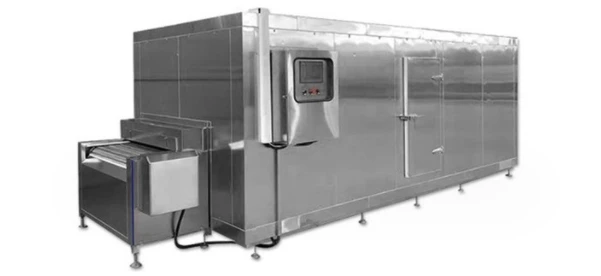Guide to Understanding Mechanical Chillers in HVAC Systems and Their Applications
Understanding Mechanical Chillers An Essential Component in Modern Cooling Systems
Mechanical chillers are vital components in various industrial and commercial applications, offering efficient cooling solutions for a wide range of processes. Whether in air conditioning systems for large buildings, cooling systems for industrial processes, or even in refrigeration applications, chillers play a crucial role in maintaining optimal temperatures.
How Mechanical Chillers Work
At its core, a mechanical chiller operates on the principles of thermodynamics and refrigeration. These systems utilize a refrigerant, a substance that changes from liquid to gas and back again, to transfer heat from one location to another. The main components of a mechanical chiller include the compressor, condenser, evaporator, and expansion valve.
1. Compressor The refrigerant enters the compressor as a low-pressure gas. The compressor compresses this gas, raising its pressure and temperature. This process transforms the refrigerant into a high-energy gas.
2. Condenser The high-pressure gas then flows into the condenser. Here, it releases heat to the environment (often using air or water for heat exchange), causing the refrigerant to condense into a high-pressure liquid.
3. Expansion Valve The high-pressure liquid refrigerant passes through the expansion valve, which reduces its pressure. This drop in pressure allows the refrigerant to expand and cool rapidly.
4. Evaporator The low-pressure, cool refrigerant then enters the evaporator, where it absorbs heat from the environment (either from the chilled water or air that needs cooling). As it absorbs heat, the refrigerant evaporates back into a gas and returns to the compressor, completing the cycle.
Types of Mechanical Chillers
Mechanical chillers can be categorized into two main types vapor-compression chillers and absorption chillers
.mechanical chiller

1. Vapor-Compression Chillers These are the most common type and are widely used in both commercial and industrial applications. They operate using the refrigeration cycle described above and are known for their efficiency and effectiveness in providing cooling.
2. Absorption Chillers These chillers utilize heat, rather than mechanical energy, to drive the cooling cycle. They use a refrigerant and an absorbent pair, such as water and lithium bromide. While absorption chillers are less common than vapor-compression chillers, they are particularly beneficial in applications where waste heat, such as from industrial processes, is available to drive the cooling process.
Applications of Mechanical Chillers
Mechanical chillers are indispensable in various sectors. In the HVAC (heating, ventilation, and air conditioning) industry, they provide cooling for large commercial buildings, data centers, hospitals, and manufacturing facilities. In industrial settings, chillers are used for temperature control in manufacturing processes, ensuring products are created under optimal thermal conditions.
Additionally, chillers are crucial in refrigeration systems for food storage and preservation. They help maintain the required temperatures for perishable goods, thereby playing a vital role in the food supply chain.
Energy Efficiency and Sustainability
As energy costs rise and environmental concerns grow, the efficiency of mechanical chillers has become a significant focus for manufacturers and operators. Innovations in design and technology, such as variable speed drives, advanced heat exchangers, and smart controls, have improved the energy efficiency of chiller systems.
Moreover, the choice of refrigerant is becoming increasingly important due to environmental regulations aimed at reducing greenhouse gas emissions. Many modern chillers now use low-GWP (global warming potential) refrigerants, contributing to more sustainable cooling practices.
Conclusion
Mechanical chillers are a cornerstone of modern cooling technologies, essential for various applications across multiple industries. Understanding their operation, types, applications, and advancements in energy efficiency is crucial for businesses looking to leverage these systems effectively. As we move towards a more energy-conscious future, the role of mechanical chillers will continue to evolve, embracing new technologies and sustainable practices to meet the demands of various sectors while minimizing environmental impact.
















































































































